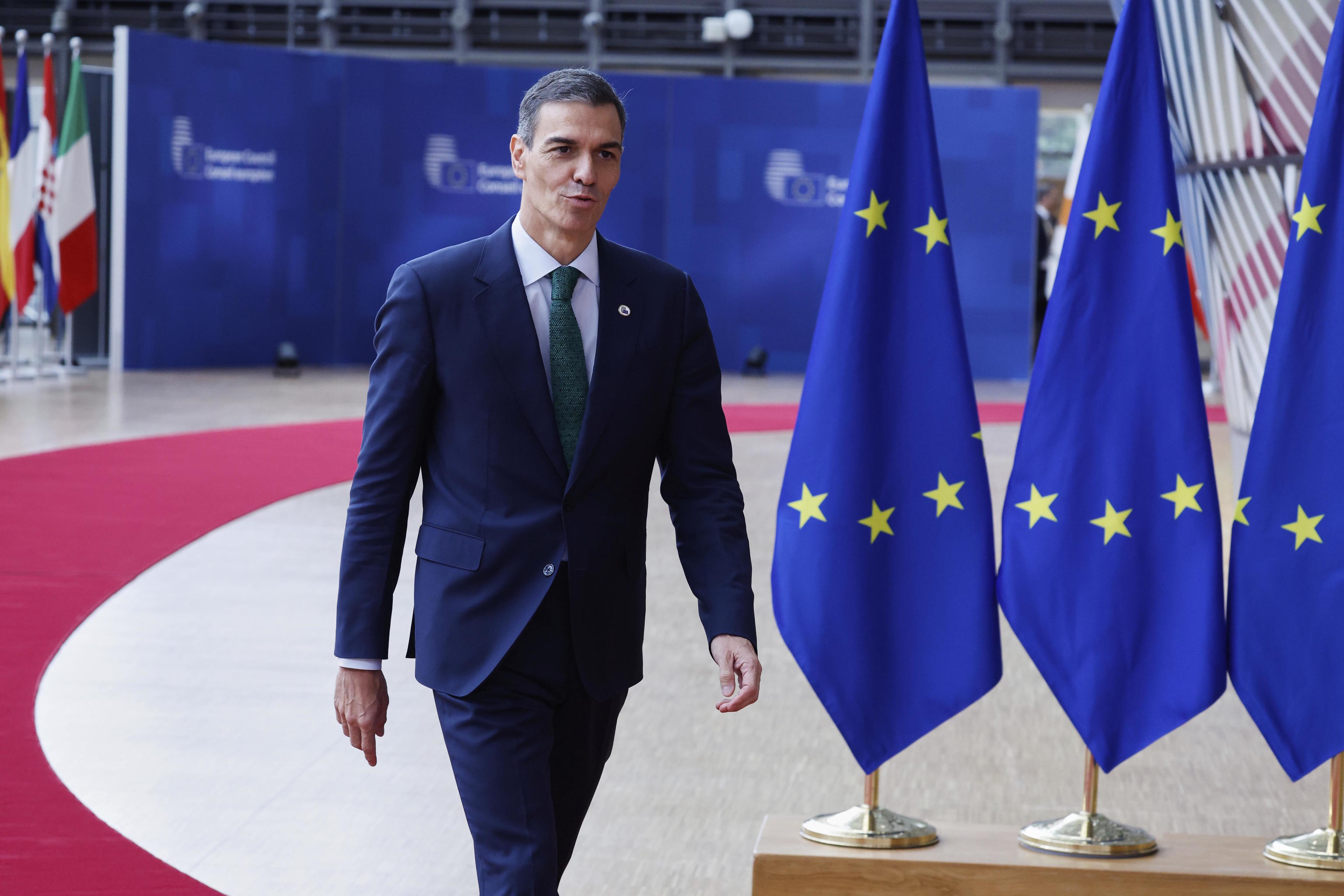The position of the Spanish Government of not committing to reach 5% of GDP in Defense spending has sparked a clash with the US Administration, whose escalation would only be preceded by when José Luis Rodríguez Zapatero decided to withdraw troops from Iraq. That threshold was a demand from NATO and the US, but the Government negotiated bilaterally and outside the joint agreement for flexibility in its own spending path, which La Moncloa, based on calculations by the Armed Forces technicians, estimates at 2.1% of GDP.
This deviation led Donald Trump to threaten to derail the Spanish economy by imposing more tariffs. Pedro Sánchez, who has moved from The Hague to Brussels to participate in a European Council, has defended that Spain "is a sovereign country" to make its own decisions and will comply "with our military capabilities" demanded by the Alliance. The Government continues to insist that the military capability requirements that the states agreed to have ready on June 5 can be addressed without exceeding 2% of spending.
Sánchez argues that Spain has sought "balance" by adhering to the joint declaration of the 32 allies, which states the goal is to reach 5% of spending, but defending its 'clause' to flexibilize spending and stay at that 2.1% "is an absolutely compatible commitment with sustaining and strengthening the welfare state". In other words, he has defended and ratified the position held in NATO that triggered this conflict.
Currently, the Prime Minister faces a moment of great weakness. The UCO report describing an alleged corrupt scheme in the PSOE and the Government - involving two of his closest confidants, José Luis Ábalos and Santos Cerdán - has already stalled the legislature, causing much discomfort among his supporters. A situation where Sánchez would have accepted without opposition setting military spending at 80 billion a year could have been a lever for parties like ERC, Bildu, BNG, or Podemos to break the mandate. At least, the clash gives Sánchez breathing room and margin to try to shift the focus away from the corruption issue.
"We are in a customs union, a single market, and trade policy is negotiated by Brussels on behalf of all member states," Sánchez stated, in line with what Economy Minister, Carlos Cuerpo, has been defending.
Defense Minister, Margarita Robles, has been very firm in her first public statements after the NATO summit. "No one has to tell Spain what to do," she stated. Robles reiterated that the Spanish Armed Forces are "ready to commit when necessary and as needed" in all missions where their help is requested. "Spain is a serious, reliable, committed, and responsible ally, who speaks less and does more," she emphasized seriously. She also defended the national Defense industry, stating that it "does not need lessons from anyone." The Defense Minister stressed that "Trump, instead of addressing Spain, should have used his influence to end the war in Ukraine."
Finally, without singling out any country, Robles stated that "Spain wants to have the best relations with its partners, but does not accept lessons from anyone." The minister made these remarks at the Higher Center for Defense Studies, where she accompanied the King in the diploma ceremony of the XXVI course of the Armed Forces Staff College, reported by Marina Pina.
The US administration could decide to impose tariffs not jointly on our country but on specific products. Choosing Spanish products to impose tariffs on would have a significant economic impact. In fact, the Government has already activated a 14.1 billion aid plan to "mitigate" the negative impacts of the trade war initiated in April by Trump against the rest of the world.
The Government recalls that Trump's tariff threat is not a new situation and that Europe "has been experiencing a trade war with tariff measures that Spain has considered unfair and unilateral from the start." Sánchez complains that tariffs on Spain are doubly unfair because Spain has a trade deficit with the US. In an attempt to avoid escalating the clash, the Prime Minister has stated that Spain "is a friend of the US." La Moncloa's purpose throughout this clash has been to avoid direct confrontation with the Trump Administration.
